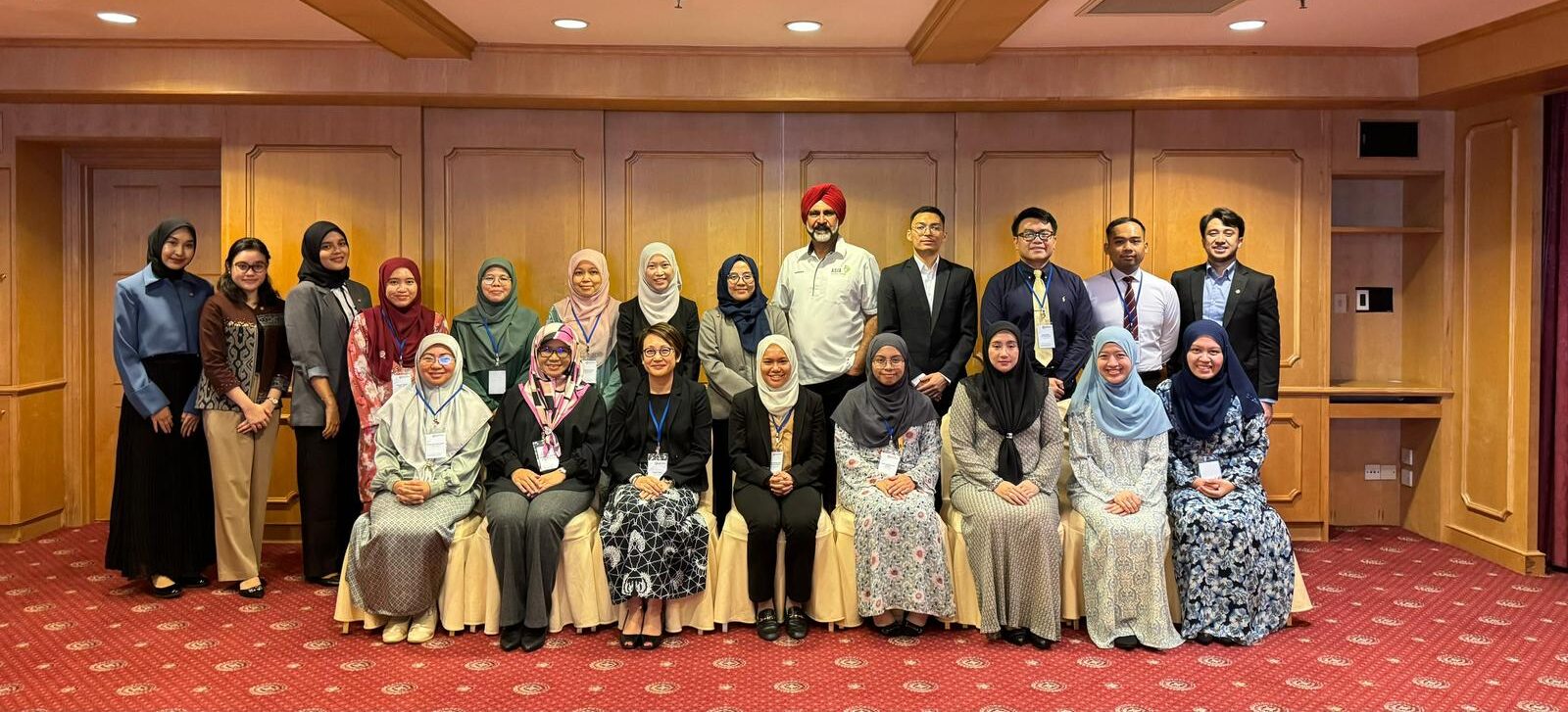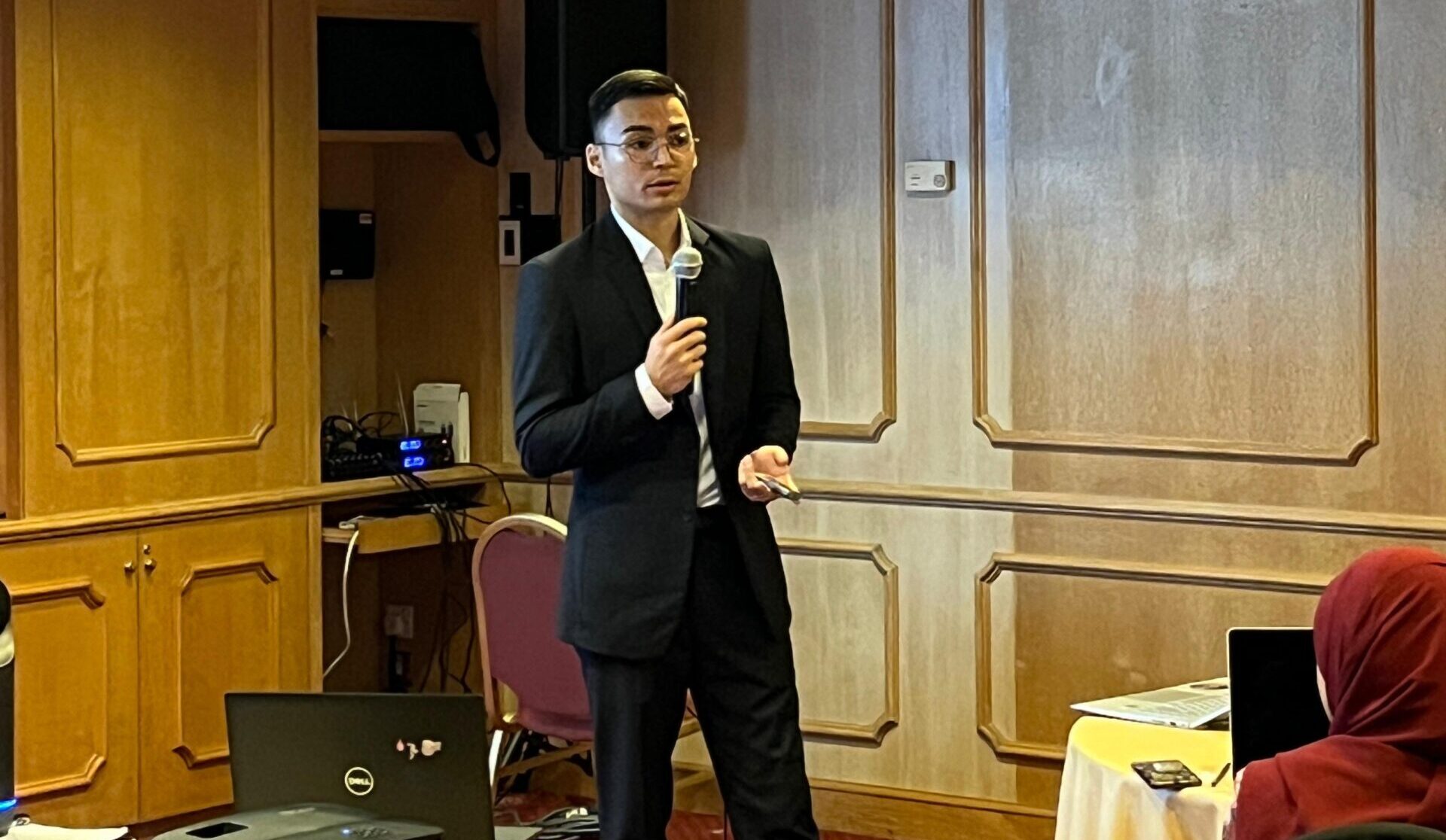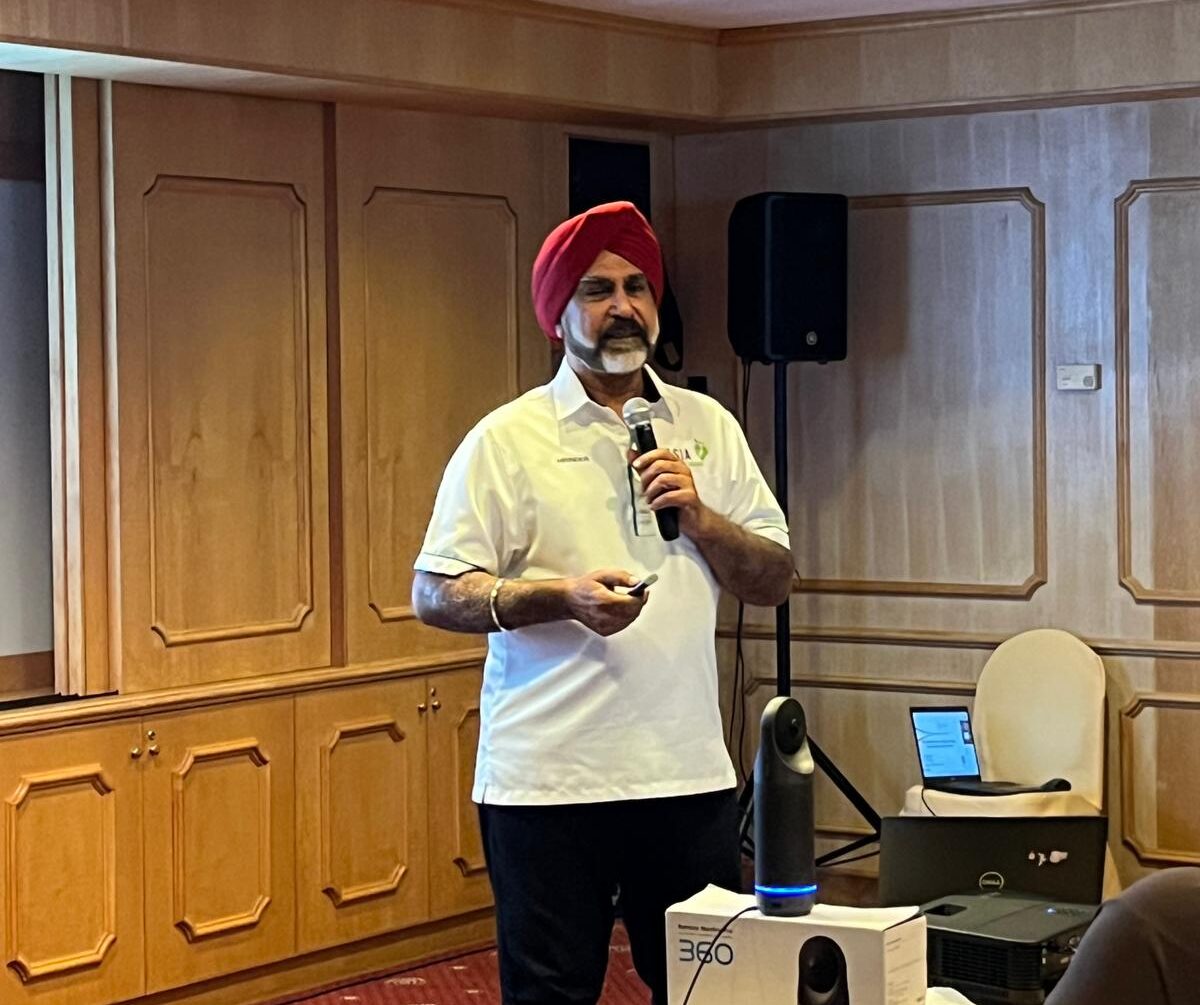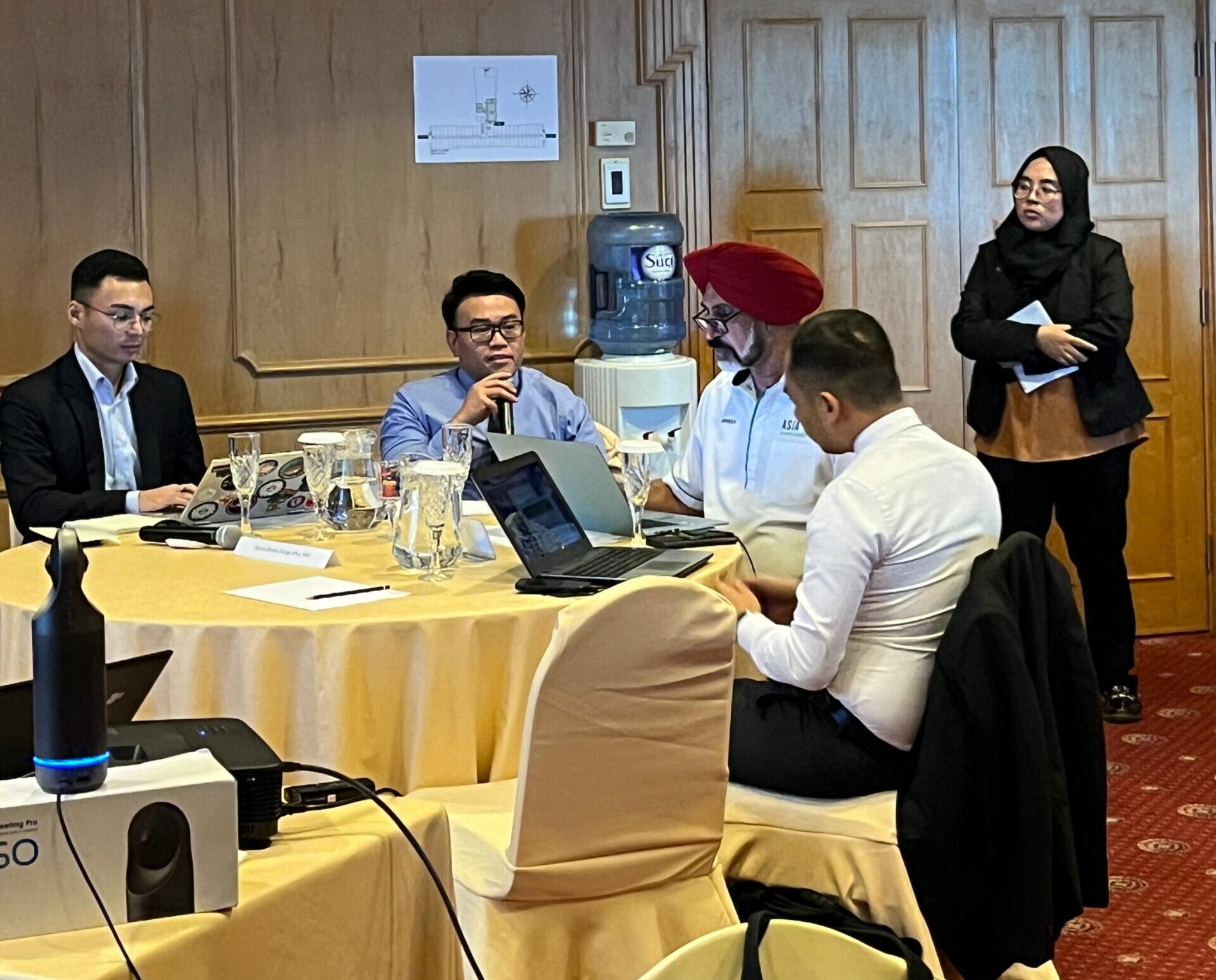Menu

The ASEAN Centre for Energy (ACE), supported by Asia Carbonx Change and SuSca Group, hosted the Bilateral Meeting on Brunei Darussalam’s Renewable Energy Certificate in Bandar Seri Begawan on 14-15 February 2024. The meeting aims to address gaps in the Renewable Energy Certificate (REC) market practice in Brunei Darussalam and seek potential alignment with neighbouring countries within BIMP (Brunei Darussalam – Indonesia – Malaysia – Philippines).
The two-day discussion encompasses six different sessions. These sessions cover the regulatory framework and current status of the REC market designs in Brunei Darussalam, best practices in ASEAN countries, the interplay between REC market drivers and corporate sustainability reporting, and identifying the immediate policy interventions for scaling up REC in Brunei Darussalam.

Photo 1. Opening Remarks by Puan Shirley Sikun, Director of Energy Transition Division at Department of Energy, Prime Minister’s Office (PMO) of Brunei Darussalam
The event began with a warm and gracious welcome from Puan Shirley Sikun, Director of Energy Transition Division at the Department of Energy, Prime Minister’s Office (PMO) of Brunei Darussalam. Following that, Beni Suryadi, Manager of the Sustainable and Renewable Energy Department (SRE) at ACE, addressed the significance of discussing REC among Brunei Darussalam policymakers. This dialogue aims to enhance national market practices, paving the way for cleaner energy in both Brunei Darussalam and the broader ASEAN region.
The first session started with an introduction to the regulatory framework and current state of the REC market in Indonesia. Veronica Ayu Pangestika, Associate Research Analyst of SRE at ACE, provided an update on the 2024 work plan for RECAP. Following this, Puan Shirley Sikun, Director of the Energy Transition Division at the Department of Energy, PMO, presented an overview of REC in Brunei Darussalam and the UK-Brunei Green Economy Framework. The session concluded with Barry Jones, Market and Sustainability Analyst of SuSca Group, discussing REC market stakeholders and key principles. Monika Merdekawati, Senior Research Analyst of SRE at ACE, moderated the session.

Photo 2. Presentation with Barry Jones, Market and Sustainability Analyst of SuSca Group
The following session, moderated by Muhammad Ilham Rizaldi, Research Analyst of SRE at ACE, began with a presentation from Barry Jones, Market and Sustainability Analyst at SuSca Group. He discussed global and regional perspectives on REC market design, including best practices, case studies, and recommendations for Brunei Darussalam, referencing the EU and ASEAN. It was followed by a presentation from Ir. Nirinder Singh Johl, Founder and CEO of Asia Carbonx Change, about the role of utility in developing Malaysia’s REC market. This session was followed by a discussion among all participants. This session is all about understanding REC market designs and best practices in ASEAN Countries and beyond.
The second day began with a session about understanding REC market drivers concerning corporate sustainability reporting. Barry Jones, Market and Sustainability Analyst of SuSca Group, gave a presentation about unveiling the demand drivers for cross-border REC trading. The following presentation was about national, utility and private sector needs in shaping REC policy by Ir. Nirinder Singh Johl, Founder and CEO of Asia Carbonx Change. Lastly, Barry Jones presented cross-border RECs: why and how. He elaborated on the challenges of cross-border trading within ASEAN and how to address them.

Photo 3. Presentation with Ir. Nirinder Singh Johl, Founder and CEO of Asia Carbonx Change
In this session, participants engaged in a breakout discussion focused on Brunei Darussalam’s REC market designs. Additionally, they explored best practices within ASEAN countries and the EU. The discussion was both insightful and substantial, with all attendees actively contributing their perspectives on the advantages and disadvantages.

Photo 4. Discussion Session
At the end of our bilateral meeting, Beni Suryadi, Manager of ACE, highlighted the significance of these discussions in advancing the REC system within Brunei Darussalam and the broader ASEAN region. He also pointed out that such cooperative dialogues are crucial for aligning regional energy policies to achieve our goals. He concluded with optimism that Brunei Darussalam would encourage corporate investment in clean electricity, advancing towards a sustainable future aligned with global goals that would benefit both Brunei and the broader ASEAN community.
